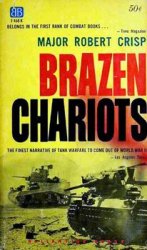The texts studied in this chapter, examples of sixteenth-century first-person writing that claim to record or express personal experience, have no easily available label. The term ‘life-writing’, used in the title of this chapter, is flexible enough to include the variety of forms in which first-person writing occurs in the sixteenth century, for example, memoirs, chronicles, travel accounts, diaries, and verse, but it also covers biographies of subjects other than the author.1 The more familiar term ‘autobiography’, a nineteenth-century coinage, is misleading because it implies a prose narrative of the whole or a large part of the author’s life, figuring the self as introspective and individualistic (see Gusdorf 1980; Burke 1977; L. Davis 2006).2 Sixteenth-century
' For an account of the wide variety of autobiographical forms used by early modern ‘artisans’, see Amelang (1998, ch. 2). I am particularly indebted to this very stimulating study throughout my discussion.
2 For some of the difficulties of trying to fit sixteenth-century life-writing into the conventional autobiographical genre, see Osborn (1959). While ‘autobiography’ as a genre presents problems to a
Life-writing presents us with a far more fragmented and heterodox array of texts, some of which show little interest in producing a coherent or sustained narrative of the self, while in others, vivid versions of authorial selves are produced, often engaged in a complex process of self-definition. The voices and purposes of first-person subjects in sixteenth-century writing vary as the kinds of texts in which they are produced vary, from eyewitness testimony to intimate complaint. It is, no doubt, only from a modern individualist perspective, fascinated by early presentations of the self and personal experience, that the texts studied in this chapter can be seen as part of a related phenomenon at all. This retrospective perspective, however, does seem to bring into focus a striking body of work in which first-person experience and witness are of central importance. Jacob Burckhardt’s famous claim that it was not until the Renaissance in Italy that ‘man became a spiritual individual, and recognized himself as such’ has long, rightly, been rejected as a gross oversimplification (Burckhardt 1944: 81; see L. Patterson 1990; Aers 1992). Nevertheless, for reasons no doubt having much to do with the growth in literacy, personal life-writing began to proliferate throughout Europe in the sixteenth century (Amelang 1998: 190; Burke 1977: 21).3 Although often taking strange and unfamiliar forms, the texts studied in this chapter suggest a widespread interest, particularly in the middle decades of the century, in formulating first-person voices and developing genres for the writing of personal experience.
Recent studies of autobiographical writing have stressed the contingency of the self as subject (Greenblatt 1980, esp. introd. and con.; Sprinker 1980; Porter 1997:1-16). Following their lead, my discussion takes for granted that the sixteenth-century selves we meet in texts are the products of language, subject to the ideological discourses and generic constraints that shape the text and define what can be thought and said about the self. However lively, idiosyncratic, and persuasive they may seem, the subjects of sixteenth-century personal writing are products of their specific time and place, voicing, as we shall see, concerns and perspectives that share much in common with each other. Sixteenth-century subjects may also often seem discontinuous, undeveloped, and at times conspicuously artful to modern readers, more used to the introspective continuous narratives of much modern autobiography. But while the unfamiliar genres in which first-person writing of personal experience is found in the sixteenth century, from eyewitness chronicles to occasional verse, undoubtedly help to shape and define the authorial subject who writes, genre is itself subject to shifts in ideology that create new discursive possibilities. As cultural codes and systems of belief and practice change, old forms and genres become distorted and are recombined to produce new and distinctive voices. The subjects of much first-person writing in the sixteenth century find expression in unexpected forms, often in older
Student of sixteenth-century literature, the adjective ‘autobiographical’ to describe writing about the authorial self remains useful and does service throughout this chapter.
3 Incomplete lists of sixteenth-century diaries can be found in Matthews (1950), and of life narratives in Matthews (1955); see also Houlbrooke (1988).
Genres pressed to new uses.4 Old formats were adapted and changed to voice new understandings of the self and the significance of experience.
James Amelang observed of early modern artisan literature that ‘one can properly refer to it as a literature of displacement, in various senses of the term’ (Amelang 1998:124,190; see also Greenblatt 1980: 7-8; Delaney 1969:19). Displacement, often in the literal form of travel, but also expressing a sense of detachment from, or disillusionment with, existing social structures is a recurring theme in English first-person life-writing in the sixteenth century. For the linguist Emile Benveniste difference is structurally necessary for the production of subjectivity: ‘consciousness of self is only possible if it is experienced by contrast’ (Benveniste 1971: 224; Silverman 1995: 45). A sense of difference has indeed been hailed as the defining mark of autobiography, linking the genre to an emergent sense of individualism (Masuch 1997). Felicity Nussbaum, writing on autobiography and ideologies of freedom and enterprise in eighteenth-century texts, suggests that ‘autobiographical writing encouraged a consciousness of a more particular sense of uniqueness from others in the species, and allowed the definition of that uniqueness as requiring realization through selfinterested pursuit’ (1995: 53). While a sense of difference is implicit in the very act of writing in the first person, the sixteenth-century first-person subject is rarely presented as unique or concerned with individual self-realization (Amelang 1998: 233-4; Harari 2004: 45-63).
In many respects the apotheosis of sixteenth-century personal life-writing is Thomas Whithorne’s extraordinary autobiographical manuscript ‘The Book of Songs and Sonnets’. Whithorne’s manuscript records his verse, both secular and religious, contextualizing them with long prose narratives which present a life that strives to achieve social and professional success at the same time as conforming to approved standards of virtue. This text, however, shares a great deal in common with, and can only be properly understood as an example of, first-person writing more generally in the sixteenth century, particularly its concern with finding a stable and acceptable social identity, and its use of verse to produce rhetorically heightened versions of the self. In the next three sections of this chapter I will thus review a range of sixteenth-century first-person writing, including career narratives, chronicles, accounts of experience abroad, and versions of the self in verse, before turning in the final section to a more detailed discussion of Whithorne’s manuscript.




 World History
World History









